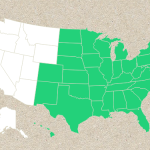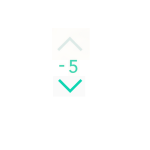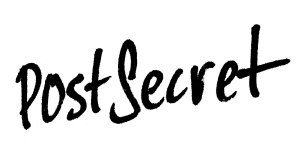When students are asked “Why did you come to Gustavus?” a common response is “I loved the feeling of community.” It is one of our five core values clearly printed on a pillar in the Evelyn Young Dining Room. What happens when something on campus could be destroying that sense of community?
Confession sites and mobile apps have become a popular trend within the last few years. The Facebook page Gustavus Love Confessions started in 2013 and allowed students to anonymously post their secret crushes to a Google Docs form and then the administrators of the page would post the confessions as a status to the Facebook page. Those administrators of the page have the ability to filter the posts and only put up posts they deem appropriate and reflect what they want the page to be about.

“Gustavus Love Confessions is about building people up. There is an expectation and a filter,” Junior Logan Boese said.
“Gustavus Love Confessions: the intent of it is to share positive feelings toward somebody,” Director of Campus Activities Andrea Junso said.
Since the school year started, a new mobile app has increased its popularity among college students. Yik Yak is also an anonymous way to post your feelings, but it doesn’t have administrators monitoring it. Each “Yak” pops up instantly which is very similar to Twitter. Each Yakker’s phone keeps track of your own Yaks and replies. Other Yakkers are able to see Yaks from people within a 1.5 mile radius of their location. If someone likes a Yak, it can get up-voted. The higher number of up votes, the higher it gets posted in the newsfeed. If a Yak gets down-voted five times, it will disappear from the newsfeed, but stay in your Yaks.
The creators of this app also added a level of competition to social media. The more you Yak, reply to others, or get up votes on your Yaks, the more points you collect. This provides users with a way to compete with friends and post things that they think they get more up votes.
“I think [the creators] are brilliant. They have gameified social media. You give an opportunity to earn points. People are competitive. They were smart to latch onto that,” Director of Residential Life Charlie Potts said.

When students start to compete and rely on the anonynimty of Yik Yak, the types of Yaks become less humorous and start to criticize specific individuals and student organizations on campus, which leads to dozens of posts of the same negative nature which can be harmful to fellow Gusties.
“Would you say those things if your name was attached to it? Or is it only in the cloak of anonymity that you are willing to say some of the hurtful things that get said. What does that mean for us as a community?”—JoNes Van Hecke
Gustavus is not the only campus that negativity has crept into. Upon Yik Yak’s release in 2013, cyberbullying became a huge problem at middle schools and high schools. Creators of the app, Tyler Droll and Brooks Buffington altered the app to include geo-fences, which are invisible bubbles around the areas of middle and high schools and block the use of the app within the bubble. According to The Huffington Post, about 85 percent of high schools and middle schools in the United States have been geo-fenced.
By allowing only “adults” to have access to the app, the hope was to decrease the amount of bullying and harassment. However, the negativity seems to continue across college campuses, causing certain schools to ban the app all together.
“People aren’t realizing the connection of what is done and what is felt,” Boese said.

A student-created organization has brought attention to the negative atmosphere that Yik Yak is creating at Gustavus. Students Against Yuk (SAY) is a group of students across campus that have started the “Take Back the Yak” campaign and are encouraging students to think about what they are posting and to bring Yik Yak back to humorous and appropriate Yaks. They will even offer students a Frost-Your-Own if they are willing to show SAY their own top Yaks.
“It’s really about getting the ball rolling. When you see those negative Yaks, down vote them. It’s taking those first initial steps to reverse the stigma, trying to eliminate those negative Yaks. Empowerment is going to be needed to make that shift to a more positive space to Yak,” Senior Eric Pothen said.
“This is 100 percent student driven. I love the fact that Gusties looked at what was going on and said this is not who we want to be and they actually did something. That’s the kind of Gustavus I want to live in every day, where you are the change you want to see in the world. This random group of students said we can say something about this and I think that is literally the embodiment of an ideal Gustie,” Vice President for Student Life and Dean of Students JoNes Van Hecke said.
Allowing students to be anonymous doesn’t always have a negative impact. It can create an open environment for discussion for those not comfortable enough to share their opinions out loud.
“There is some really good research out there about how anonymous social media can be a powerful tool from less-privileged identities that are more comfortable being anonymous,” Potts said.

In 2010, Frank Warren was chosen as the Campus Activities Board’s Big Speaker. His project, PostSecret, had people from around the United States mail their secrets on postcards to Warren. He then selects some of the secrets and has published them in six different books. Before Warren came to Gustavus, the campus participated in their own version of his project.
“We had Gusties put their secrets in. They were heart breaking. We put them all up in the display case and they were anonymous. You know some Gustie is sharing this secret about their vulnerability and they almost always connected back to mental health. It was a huge mental health awareness movement that showed that Gusties aren’t alone and was very uplifting and community building and created a sense of community that you don’t have to be scared and alone. There is support here and resources available,” Junso said.
This project was focused on anonymity but it was seen as a positive experience that bettered Gustavus as a whole. Being anonymous doesn’t always lead to negativity, it is just revealing a part of someone that wouldn’t normally be said out loud.
“When we say something anonymously, we think that it doesn’t say anything about who we really are, but it reflects more on you than putting your name to it,” Potts said.
“Would you say those things if your name was attached to it? Or is it only in the cloak of anonymity that you are willing to say some of the hurtful things that get said. What does that mean for us as a community?” Van Hecke said.
In a place where students, administrators, and faculty pride themselves on community, can the effects of Yik Yak be reversed and anonymity be used to create a better environment?
“Its creating another opportunity for conversation for what we value as a community, and what does that mean for individuals. A community is a collection of individuals who agree and have things that we want to share in common, that want to be something in the world, and create something bigger than ourselves, individually,” Van Hecke said.
-Erika Clifton

Created in 2013
250,000 users
Features: unlimited characters in a Yak, anonymous status updates based on your location.

Created in 2004
1.23 billion active users
Features: Status updates, picture sharing, instant messenger, networking groups, event publicity,
business pages, games.

Created in 2006
232 million users
Features: 140 character status updates, picture sharing

Founded in 2005
80,000 users in the online discussion forum
Displayed over 2 million secrets through books, online, and museum pieces.
Features: community mail art, published books of secrets, discussion forums.